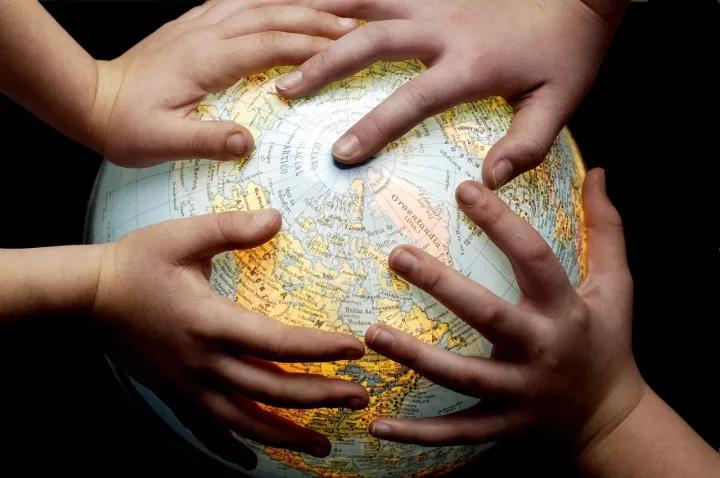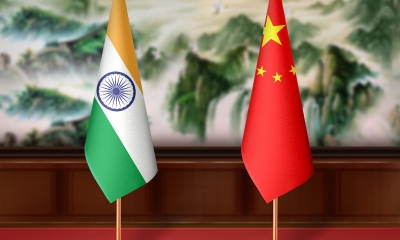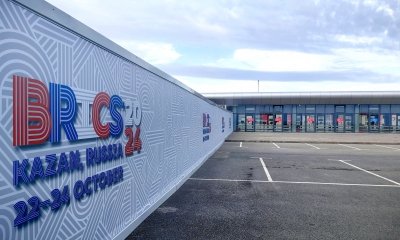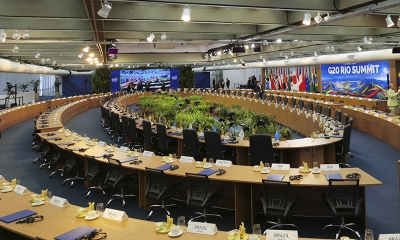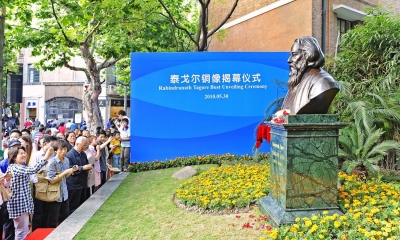BRICS Summit Preserves Multilateralism against Protectionism
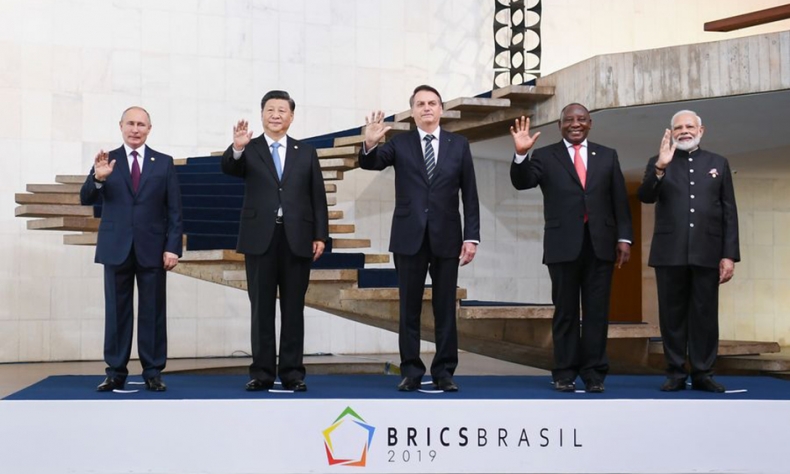
The rapid development of BRICS nations makes more sense today since the emerging-market economies as a group is regarded as a rising power of the global economy.
Accepting the mantle of the revolving BRICS presidency from South Africa on January 1, 2019, Brazil, the South American powerhouse and G-20 member hosted the 11th Annual Summit of BRICS at the Itamaraty Palace in the capital city of Brasilia on November 13-14 in its capacity as chair of the influential group, which is comprised of the world’s five major emerging economies, namely Brazil, Russia, India, China and South Africa. At the invitation of Brazilian President Jair Bolsonaro, Chinese President Xi Jinping, Indian Prime Minister Narendra Modi, Russian President Vladimir Putin and South African President Cyril Ramaphosa attended the annual conclave with the aim of using their growing economic and political influence to challenge the Western hegemony led by the United States, while setting directions and cooperation for a stronger BRICS that can play a larger role in global governance.
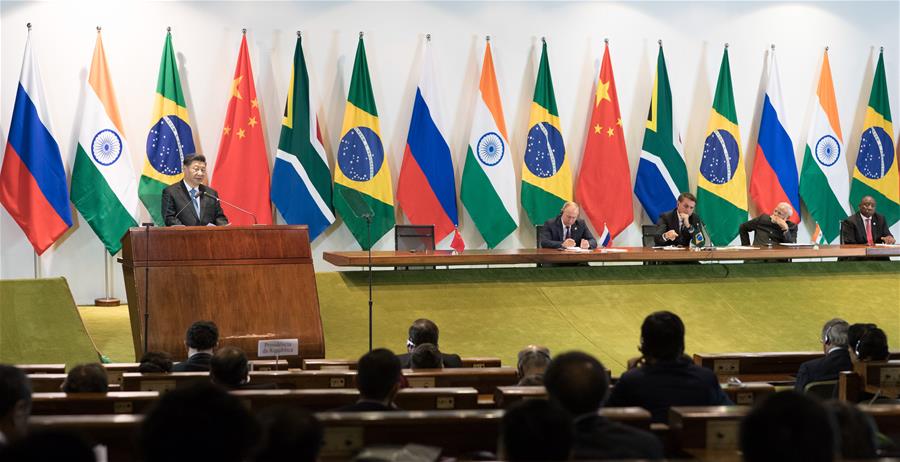
Brasilia BRICS Summit 2019: for an innovative future
Brazil held the 11th BRICS leader summit for the third time after hosting in 2010 and 2014. The Brazilian Presidency focused on the theme “BRICS: economic growth for an innovative future”, which mirrored the implementation of previous commitments from past BRICS summits.
During their two-day meeting in Brasilia, leaders of the BRICS countries and invited representatives from government and business focused on science, technology, and innovation deals, in addition to incentives for digital economy, counter-terrorism cooperation, and funding for productive activities. The Innovation BRICSNetwork (iBRICS), BRICS Institute of Future Network and BRICS Women Business Alliance (WBA) were also launched this year. The summit saw the signing of the Brasilia Declaration on November 14, featuring 73 individual commitments ranging from fighting terrorism to climate change, as well as promoting globalization to benefit all.
Importance of the BRICS mechanism to the BRICS societies
Since the first summit in 2009 in Russia, the BRICS countries have evolved significantly, bringing tangible benefits to the BRICS societies. Cooperation among the five BRICS countries has set an example of a new type of international relations.
Statistically, the five-member nations account for 27 percent of the world’s landmass representing over 3.6 billion people, around 43 percent of the world population. Their economies have a combined nominal GDP of $20.2 trillion, equivalent to 23 percent of the global economy, with an estimated $4 trillion in combined foreign reserves which have given the group power to influence global trends and trajectories. Combined, they are bigger than the Eurozone and the collective size of the BRICS countries will soon be as big as the US. Together, they now account for 13 percent of World Bank voting power and nearly 15 percent of International Monetary Fund quota shares.
It is widely accepted that the BRICS economies are well placed to become the most dominant economies in the world by 2050. As the Nobel Prize laureate Michael Spence predicted, the BRICS will replace the US and Europe as the key engines of the world economy.
In the past 10 years, with the joint efforts of the BRICS members, the BRICS cooperation mechanism has entered its second “golden decade” of development, becoming the largest platform for South-South cooperation. Undoubtedly, the divergent block as a multilateral institution upholds people’s hope for stronger partnerships within and beyond the five BRICS countries as per the words of President Xi Jinping, “we need to champion and put into practice multilateralism.”
President Xi calls on BRICS to preserve multilateralism
In Brasilia, President Xi attended the BRICS business forum closing ceremony and the BRICS leaders’ dialogue with the BRICS Business Council and the New Development Bank. He held bilateral talks with leaders of Brazil, Russia and India on the sidelines of the BRICS Summit.
On November 13, speaking at the closing ceremony of the BRICS business forum, President Xi outlined a new blueprint for future development of BRICS cooperation that won applause and high praise from participants. He reiterated China’s unwavering support to free trade and multilateralism, a consensus reached among the five BRICS members in last year’s summit in Johannesburg, South Africa.
He highlighted that protectionism and unilateralism have caused a blow to international trade and are causing the pressure of global economic slowdown. He also urged more than 600 business leaders from the five member states to firmly promote an open world economy, be resolute in rejecting unilateralism and protectionism, promote trade and investment liberalization and facilitation, and jointly steer the global economy toward greater openness, inclusiveness, balanced growth, and win-win outcomes for all.
While addressing the Plenary Session on November 14, Xi re-emphasized the importance of multilateralism. Since different regions of the world have faced growing anti-globalization sentiments and trade protectionism, Xi’s speech sent a very powerful signal to those countries moving towards protectionism.
BRICS live up to expectations
In the context of the current rising trends of protectionism, unilateralism, and anti-globalization, the rapid development of BRICS nations makes more sense today since the emerging-market economies as a group is regarded as a rising power of the global economy.
According to the BRICS Research Group’s analysis, based at the University of Toronto and the Russian Presidential Academy of National Economy and Public Administration, the BRICS nations show a surprisingly high rate of compliance of keeping its promises: 77 percent on average, The Economist calculated. Truly, BRICS countries should “band together in defense of the multilateralism the United States once championed.”
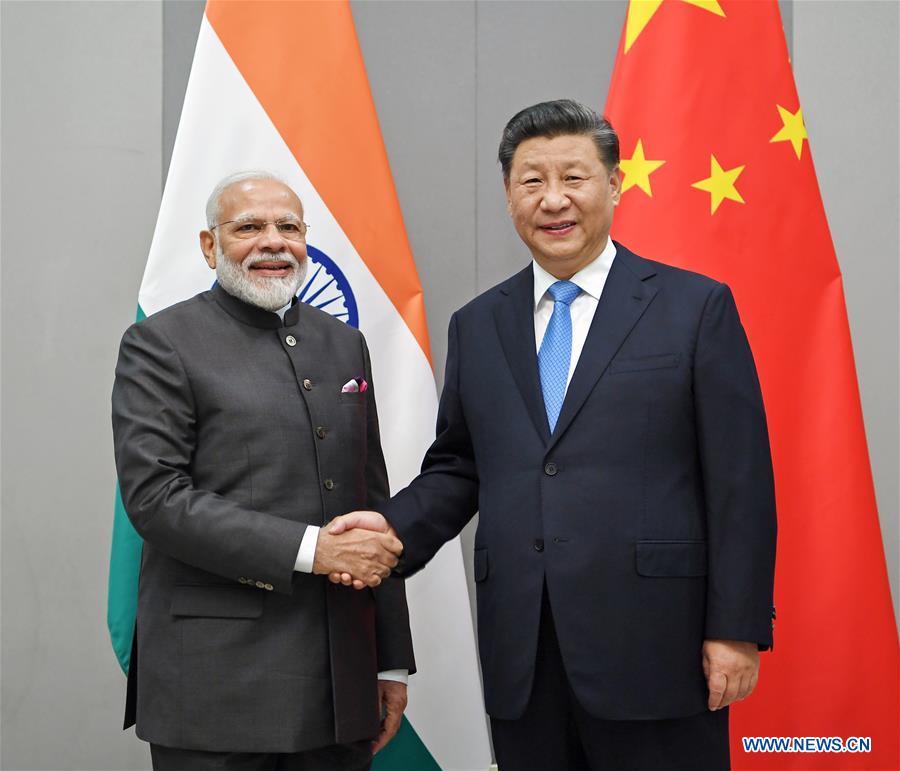
Modi-Xi sideline meeting: “new direction and new energy” in bilateral ties
Following their second informal summit in the southern Indian city of Chennai last month, President Xi and Prime Minister Modi met again on the sidelines of the BRICS Summit on November 13. This year alone, it was the third encounter between the two leaders which will surely take bilateral relations to new heights, both politically and diplomatically, going beyond the BRICS mechanism. It was reported that during the meeting in Brasilia, Xi told Modi he was willing to maintain close communication “to guide a better and more stable development of China-India relations.”
Recalling his previous meetings with Xi in Wuhan last year and in Chennai last month, Modi said there is a “new direction and new energy” in bilateral ties. It is worth noting that last month two leaders agreed to set up a High-Level Economic and Trade Dialogue mechanism to deepen economic cooperation and sort out the concerns pertaining to the bilateral trade issues.
The Chinese President welcomed Modi to visit China for another meeting next year. At this juncture, it can be said that frequent interactions between the two leaders have greatly promoted pragmatic cooperation and enhanced political mutual trust. Undoubtedly, healthy and stable relations between the two important neighbors are in line with the fundamental interests of their respective peoples.
Facing challenges together
Besides economic issues, the BRICS leaders also expounded their stances on international and regional issues of common concern, focusing on terrorism, a sustainable ceasefire in the Idlib region, the humanitarian situation in Syria, the Republic of Yemen and the Israeli-Palestinian conflict, to list a few.
According to the Brasilia Declaration, BRICS leaders condemned terrorism in all forms. “We reaffirm the international obligations to fight terrorism in all its forms and highlight the importance of unity in the fight against terrorist organizations,” Paragraph 42 of the Declaration explicitly said.
The BRICS grouping has strongly condemned “terrorist-related attacks” in Afghanistan and called for an immediate end to violence.
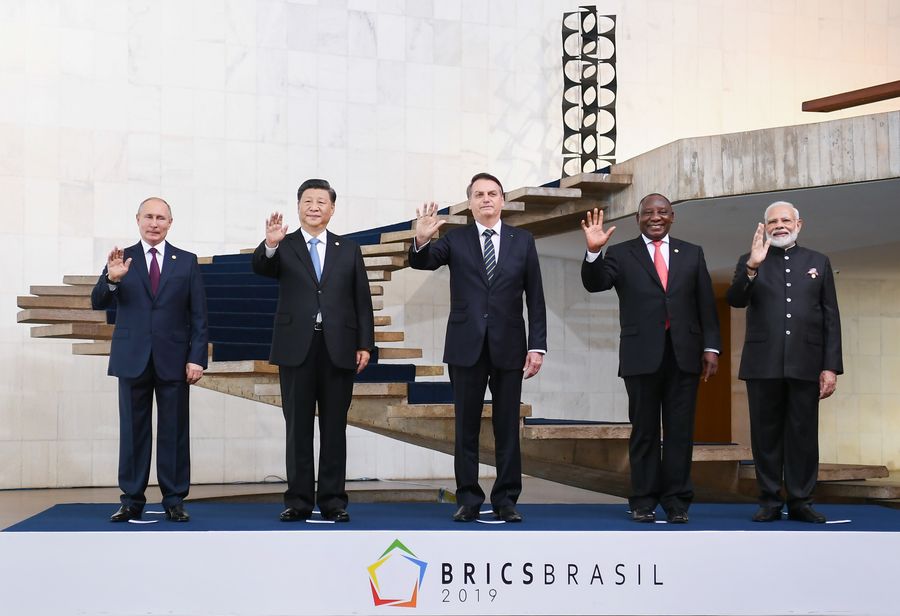
The beginning of a new “golden decade” of cooperation
There is an ancient Chinese saying, “A partnership forged with the right approach defies geographical distance; it is thicker than glue and stronger than metal and stone.”
Undoubtedly, the pragmatic cooperation among the BRICS countries is the major foundation to pursuing development and prosperity supporting each other in the era of global integration.
It’s heartening that during the Brasilia BRICS summit, the BRICS leaders, despite their political differences and conditions, spoke with a common voice calling for multilateralism and an open world economy, so as to make BRICS cooperation benefit people of the five countries as well as people of all countries at large.
It is hoped that the BRICS countries will continue to work together in achieving a new “golden decade” of cooperation that is fair, open, and innovative to benefit the welfare of humankind.
Rabi Sankar Bosu, an Indian freelance contributor to Chinese media outlets, writes about Chinese politics, social and cultural issues, and China-India relations with special interest on the Belt and Road Initiative.
Editor: Cai Hairuo
(If you want to contribute and have specific expertise, please contact us at chinafocus@cnfocus.com)
 Facebook
Facebook
 Twitter
Twitter
 Linkedin
Linkedin
 Google +
Google +
